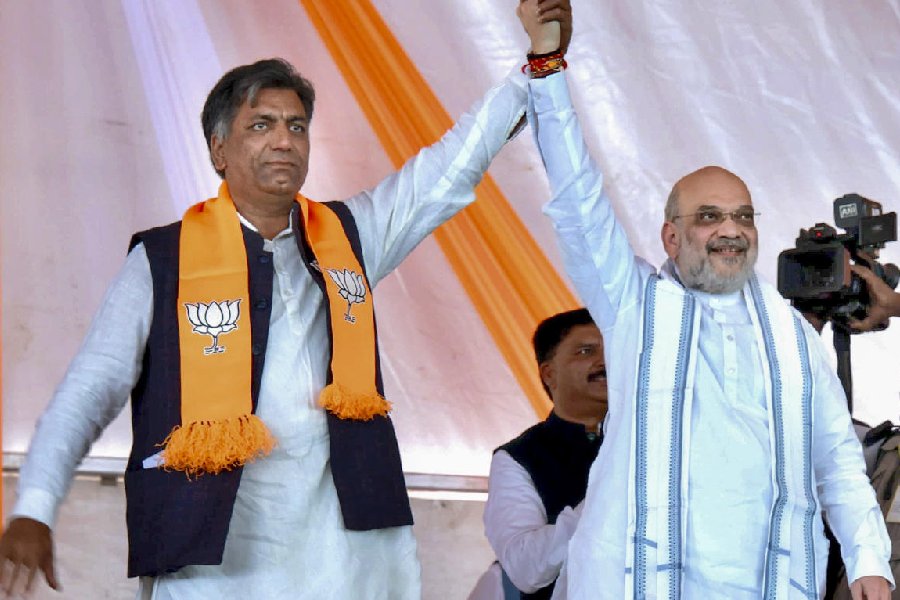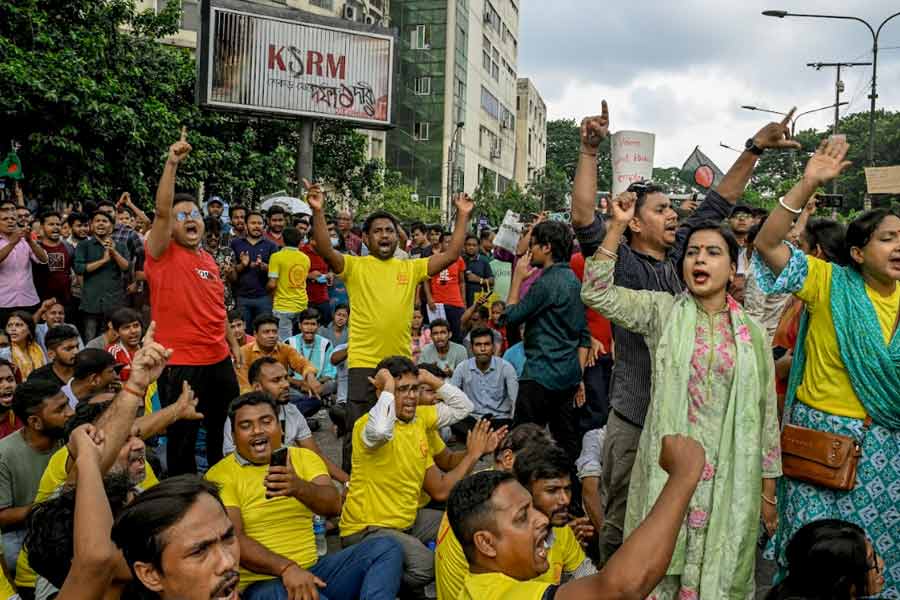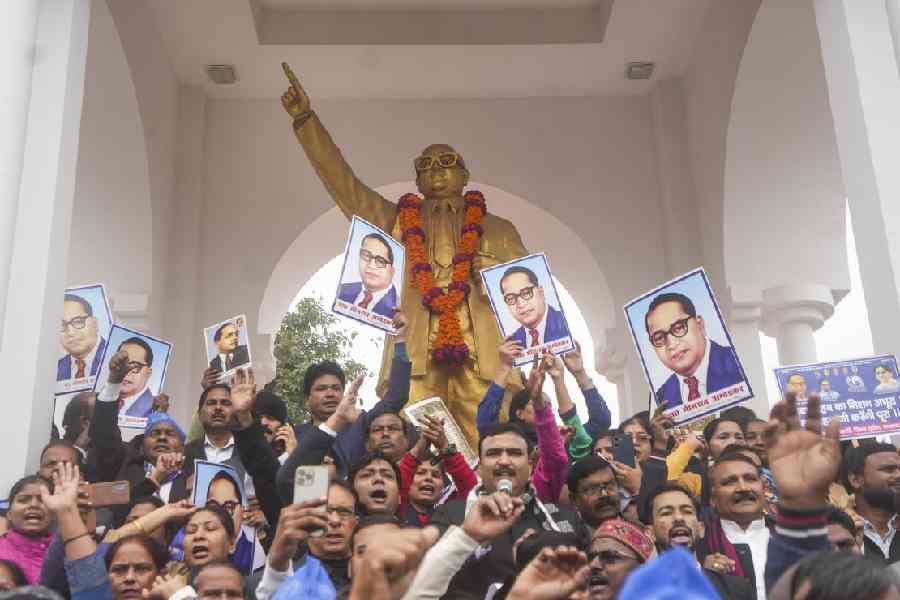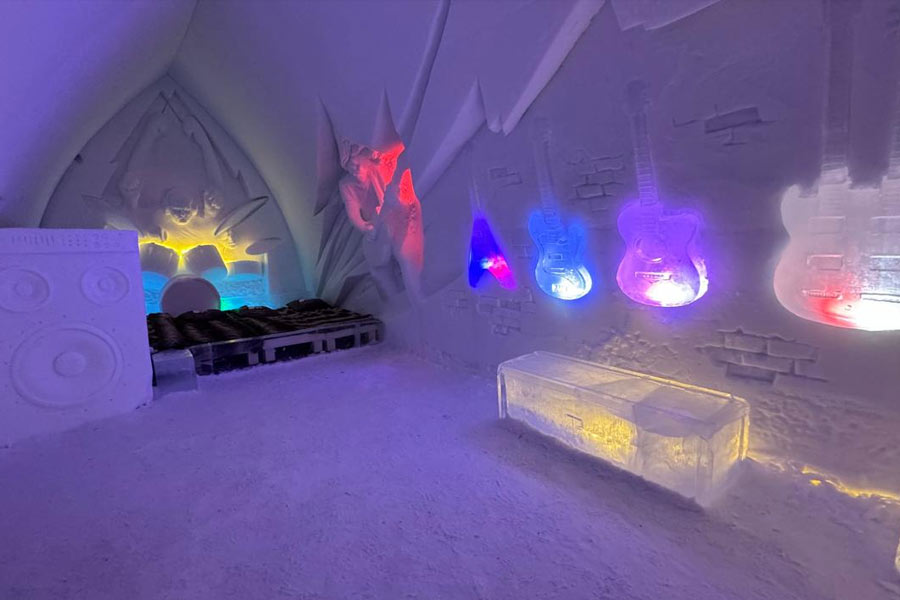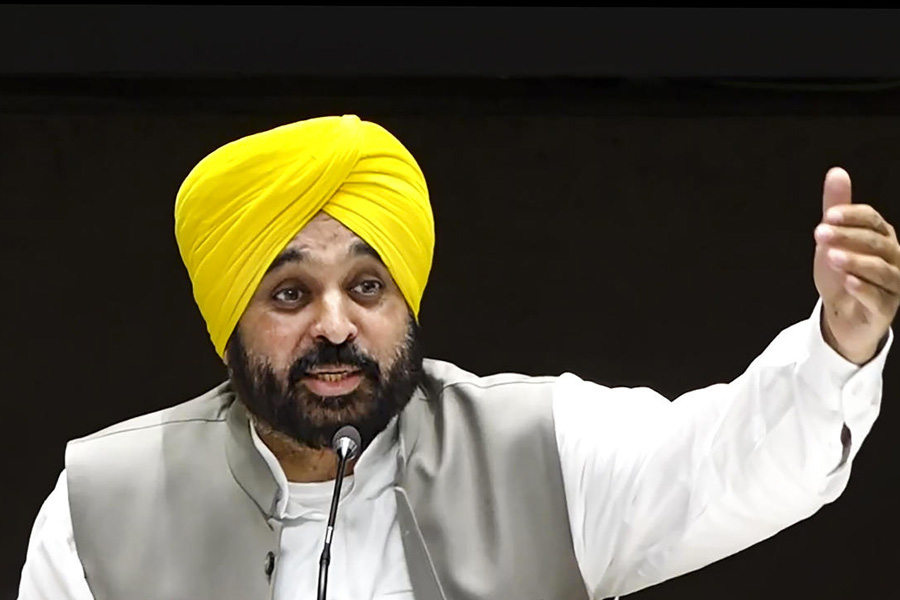If the BJP has to achieve its dream of forming the government in Jammu and Kashmir, it must make a clean sweep of Jammu’s Hindu heartland, win substantial seats in the region’s Muslim-majority districts and find capable allies in the Valley.
The task requires the party to embrace each of the four approaches to achieving one’s goal that the ancient thinker Chanakya preached: “Saam, daam, dand, bhed (negotiation, money, punishment, division)”.
Jammu’s Hindu heartland is spread over Jammu City and the Udhampur, Samba and Kathua districts, and accounts for 24 of the 90 Assembly seats. The BJP is focused equally on the Muslim-majority Chenab Valley and the Pir Panjal and Reasi districts, which make up 19 seats.
The eight Chenab Valley constituencies voted in the first phase on September 18 along with 16 in south Kashmir. The 11 Pir Panjal and Reasi constituencies will go to the polls in the second phase on September 25, along with 15 seats in central Kashmir.
The BJP gave its chances a boost in 2022 through a controversial delimitation exercise that increased Hindu-majority Jammu’s seat count from 37 to 43 in the Assembly. However, the more populous Kashmir region got just one additional seat, its share increasing from 46 to 47.
Local Muslim politicians say the limitation carved up the constituencies in Jammu in such a way that more than three-fourths of the seats in the region now have a Hindu majority. But even a clean sweep of these seats, unlikely as it is, will not by itself put the BJP in power.
So, the party is trying to make inroads into Jammu’s Muslim-majority districts.
Muslims make up a third of the Jammu region’s population but they are a majority in six of its 10 districts – three in the Chenab Valley, two in Pir Panjal and one in Reasi.
Kashmiri Muslims are the biggest group among the community – making up nearly 50 per cent of the population of the Chenab Valley -- while the mostly Muslim Paharis and all-Muslim Gujjars are the majority in Pir Panjal.
Firdous Tak, Jammu-based leader of the People’s Democratic Party, said the BJP had different strategies for the Chenab Valley and Pir Panjal.
“All three Chenab Valley districts — Doda, Kishtwar and Ramban — have a Muslim majority but, following the delimitation, Hindus are now the majority in the five constituencies of Padder Nagseni, Kishtwar, Doda West, Ramban and Bhaderwah,” he said.
Another Doda-based politician, however, said Bhaderwah still had a Muslim majority while Kishtwar was split equally between Hindus and Muslims.
In these eight seats, the BJP has fielded two Muslim candidates and six Hindus.
“The BJP’s advantage is that the Congress and the NC (National Conference) are engaged in friendly contests in Bhaderwah, Doda and Ramban, which will divide Muslim votes,” the politician said.
“They have the edge in Bhaderwah and Doda. But the party’s problem is the tough contests it faces in Hindu-majority seats like Ramban and Padder Nagseni because of rebel candidates, Independents and INDIA bloc candidates.”
In Pir Panjal’s eight seats, the BJP has fielded five Muslims (three Gujjars and two Paharis) and three Pahari Hindus. The party has long been cosying up to the Gujjars, who are Scheduled Tribes.
However, the Gujjars were enraged when the Centre last year granted ST status to the Paharis, a linguistic group whose members include upper caste Muslims and Hindus, and some other groups.
In Reasi’s three constituencies, the BJP has fielded one Muslim and two Hindus.
The party had suffered a setback in the Lok Sabha polls with Jammu’s Muslims voting en masse against the BJP-backed Apni Party candidate.
“But this time we are hopeful because we are in a direct contest. Our party is banking on the six Muslim faces (fielded from the 11 Pir Panjal and Reasi constituencies),” a BJP leader said.
“The Paharis are with us. We have fielded three Gujjar candidates and our top leadership, including Amit Shahji, has assured them that Pahari reservation will not affect them.”
Among the BJP’s Muslim candidates, Mushtaq Bukhari, Choudhary Zulfiqar, Murtaza Khan and Choudhary Abdul Gani are defectors from other parties.
Local people said the Gujjar vote was likely to consolidate behind the INDIA bloc candidates.
“The BJP will not find it easy even in some Hindu-majority seats (that vote in the second phase),” a local politician said.
Pir Panchal and Reasi vote on September 25.

